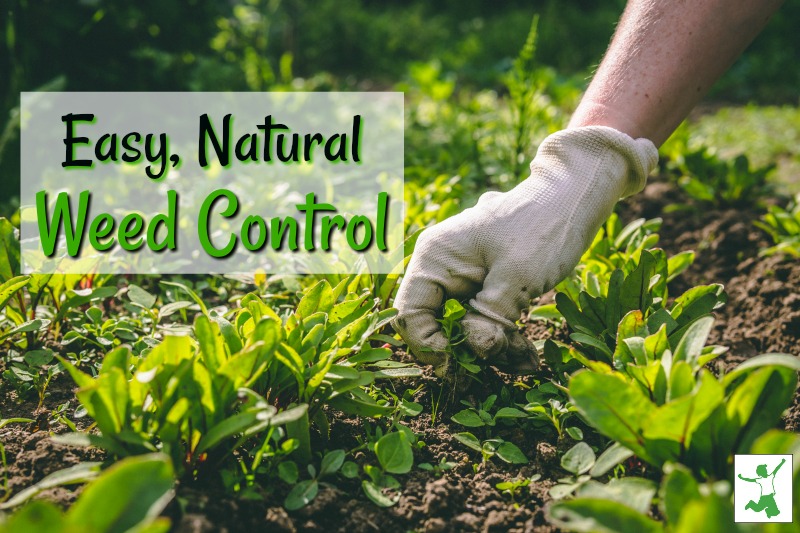Organic Weed Control, Top Methods for Gardens

Organic Weed Control: Top Methods for Gardens
Understanding Organic Weed Control
Organic weed control is all about managing weeds without resorting to harsh chemicals. It's a key aspect of organic gardening, focusing on natural, eco-friendly methods. Think of it as a gentle, sustainable way to maintain your garden's health and beauty.
Why Choose Natural Weed Control?
You might be wondering, why go organic? Well, for starters, it's safer for you, your family, and your pets. No nasty chemicals lingering around. Plus, it's better for the environment. You're working with nature, not against it. And let's not forget, it's often cheaper too!
Prevention: The First Line of Defense
Before we dive into the methods, let's talk prevention. It's easier to stop weeds from growing than to deal with them once they've taken root.
Healthy Soil, Happy Garden
Weeds love weak, compacted soil. So, your first task is to make your soil as healthy as possible. Add plenty of organic matter, like compost or well-rotted manure. This improves soil structure and fertility, making it harder for weeds to take hold.
Mulch: Your Garden's Best Friend
Mulch is like a protective blanket for your soil. It blocks out sunlight, making it difficult for weed seeds to germinate. Plus, it retains moisture and regulates soil temperature. Organic mulches, like wood chips or straw, even improve soil health as they break down.
Manual Weed Control: Get Your Hands Dirty
Sometimes, the best way to tackle weeds is to pull them out yourself. It's simple, effective, and even a bit therapeutic.
Hand-Weeding: Up Close and Personal
Grab your gloves and get up close and personal with your weeds. The best time to do this is after rain, when the soil is soft. Make sure you get the entire root system to prevent regrowth.
Tools of the Trade
For those hard-to-reach spots, you might need some backup. Tools like dandelion diggers and crack weeder knives can help you extract weeds from tight spaces.
Heat and Water: Unconventional Weapons
Believe it or not, water and heat can be powerful weapons in your weed control arsenal.
Boiling Water: The Scalding Solution
Boiling water is a quick, easy way to kill weeds. Just pour it directly onto the unwanted plants. It's particularly effective on weeds growing in cracks and crevices.
Flame Weeders: Fighting Fire with Fire
Flame weeders use heat to kill weeds. They're great for targeting weeds in driveways and other areas where you don't want to use mulch or other organic materials.
Biological Warfare: Using Nature Against Itself
Some plants and animals can help you in your battle against weeds. This is often referred to as biological control.
Ground Cover Plants: Nature's Carpet
Ground cover plants act like a living mulch, shading the soil and preventing weed seeds from germinating. Plus, they can add a beautiful touch to your garden.
Insects: The Weed-Eating Army
Some insects feed exclusively on certain types of weeds. By introducing these insects into your garden, you can control weeds naturally.
Organic Herbicides: The Natural Alternatives
If you're looking for a spray-on solution, there are organic herbicides that can do the job. These are typically made from natural ingredients like vinegar, corn gluten meal, or essential oils.
Vinegar: The Pantry Staple
Vinegar contains acetic acid, which can kill weeds. Just spray it directly onto the unwanted plants. Be careful though, it can also harm your desired plants.
Corn Gluten Meal: The Pre-Emergent Solution
Corn gluten meal is a natural byproduct of corn processing. It acts as a pre-emergent herbicide, preventing weed seeds from germinating. It's a great way to keep your garden weed-free from the start.
Garden Maintenance: Keeping Weeds at Bay
Regular garden maintenance can go a long way in controlling weeds. This includes tasks like mowing, pruning, and watering.
Mowing: The Lawn Lifesaver
Regular mowing can help control weeds in your lawn. It cuts off the weed's flower heads, preventing them from going to seed. Just make sure your mower blades are sharp to avoid tearing the grass.
Pruning: The Plant Protector
Pruning keeps your plants healthy and strong, making them better able to compete with weeds. Plus, it improves air circulation, which can help prevent disease.
Conclusion
Organic weed control isn't just about avoiding chemicals. It's about working with nature to create a healthy, sustainable garden. By using methods like mulching, hand-weeding, and biological control, you can keep weeds at bay the natural way. It might take a bit more effort, but the results are worth it.
For more tips on organic weed control, check out this guide from Gardeers.
FAQs
Q: What is the best way to prevent weeds naturally?
A: The best way to prevent weeds naturally is to maintain healthy soil and use mulch. Healthy soil promotes strong plant growth, making it harder for weeds to take hold. Mulch blocks out sunlight, preventing weed seeds from germinating.
Q: Is vinegar an effective weed killer?
A: Yes, vinegar can be an effective weed killer. The acetic acid in vinegar draws moisture out of the plant, causing it to wither and die. However, it can also harm desired plants, so use it carefully.
Q: What are some good ground cover plants for weed control?
A: Some good ground cover plants for weed control include creeping thyme, ice plant, and dragon's blood sedum. These plants shade the soil, preventing weed seeds from germinating.
Q: How does corn gluten meal work as a herbicide?
A: Corn gluten meal acts as a pre-emergent herbicide. It inhibits the root development of germinating weed seeds, preventing them from growing into mature plants.
Q: Why is organic weed control better than using chemicals?
A: Organic weed control is better than using chemicals because it's safer for you, your family, and the environment. It promotes a healthy, sustainable garden and can even be cheaper in the long run.
0 Response to " Organic Weed Control, Top Methods for Gardens"
Post a Comment